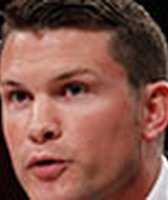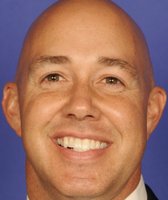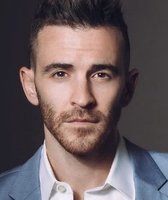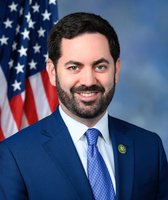Stand up for the facts!
Our only agenda is to publish the truth so you can be an informed participant in democracy.
We need your help.
I would like to contribute
Rick Scott moved to Tallahassee on an outsider’s mission of snapping the state into conservative shape. He said he’d crack down on illegal immigration, fight to repeal the 2010 health care law and make Floridians seeking public assistance take drug tests.
Scott is headed to Washington eight years later, leaving behind a brighter jobs outlook and a lower state tax burden. But his most conservative pledges are on the cutting room floor.
Scott kept many of the key promises in his 7-7-7 plan to revive the recession-battered economy. After bruising the public education budget with a $1.3 billion cut in his first year, he vowed to spend more and did in his second term — while keeping his word to expand charter schools.
But Scott was either unwilling or unable to deliver some of the more controversial measures from his 2010 campaign, losing the drug test battle in court and abandoning most of his immigration promises after his GOP primary.
PolitiFact Florida spent eight years monitoring Scott’s efforts on 76 campaign promises. As he moves on to the U.S. Senate, it’s time to review their outcomes on the Scott-O-Meter.
Sign up for PolitiFact texts
We found Scott broke about one-third of the campaign promises he made to voters in his two runs for office, while keeping about half of his promises. The rest finished as a compromise, meaning he accomplished substantially less than what he wanted but saw some gains toward the spirit of his goal.
That’s in line with the success of President Barack Obama, who broke about 24 percent of the campaign promises he made while completing nearly half.
Scott, for instance, kept his word to sell off the state’s airplanes, nixed a sales tax on manufacturing equipment and added funding to ease road congestion.
But he failed, as he promised, to ban on embryonic stem cell research, explore domestic drilling or propose an amendment to curb property tax increases.
The importance of keeping or breaking a campaign promise is in the eye of the beholder. It could demonstrate the ability of a politician to change his or her mind, or adapt to a changing situation. Or it could be a political calculation.
But one thing about Scott is clear: The Scott who won a Senate seat in November is a different leader than the one who held a celebratory budget signing at the Villages, passing out souvenir Sharpies to commemorate $615 million in vetoed projects.
"He had to moderate himself in order to become a U.S. senator and get re-elected," said Mike Fasano, a former Republican lawmaker who often criticized Scott but was later appointed Pasco County tax collector by him. "He grew into becoming one of the most savvy politicians in such a short tenure that I have ever seen in my political life."
Scott’s spokesman said he was not available to be interviewed for this story.
Scott backed off immigration promises
Scott’s promises from 2010 echoed tea party voices calling to rein in the federal government. Scott said he would push back against the Democratic agenda under President Barack Obama, going further right than the frontrunner in his GOP primary, Attorney General Bill McCollum.
But on several of these promises, Scott either abandoned the principle after his primary or got swatted down by the courts.
Scott promised to drug test welfare recipients as a way to save the state money, and the Florida Legislature handed him a bill to sign. The short-lived policy faced years of court defeats before Scott dropped it in 2015.
The battle never started for his two biggest promises to crack down on illegal immigration.
Ahead of his primary, he vowed to bring home Arizona’s controversial law that required immigrants to show police their papers. McCollum had called the law "far out," which prompted Scott attack ads.
"If someone gets stopped for speeding or arrested for robbery, the police should be allowed to determine if they are here legally," Scott said in a campaign ad at the time.
After Scott dispatched McCollum, however, the tough talk vanished. No serious effort was ever made in Florida to adopt the Arizona law.
Scott also dropped the idea to require Florida employers to use the federal E-Verify system that checks a person’s immigration status.
In subsequent campaigns against Democrats Charlie Crist and Bill Nelson, Scott offered a softer side toward immigrants.
In 2014, he signed a bill to give in-state college tuition to immigrants brought to the United States illegally as children. In 2018, Scott called on Congress to "secure the immigration status of Dreamers."
Scott heads to Capitol Hill with an ally in President Donald Trump, though he has not shared all of Trump’s positions on immigration.
"If Rick Scott wants to not be the 2010 Rick Scott, he’s got to show us he is going to take concrete action and stand up to the extreme anti-immigrant agenda," said state Sen. José Javier Rodríguez, D-Miami.
Economic recovery helped Scott deliver on jobs
Experts credit much of Florida’s job growth to factors outside of Scott’s purview, such as the national economy, federal stimulus dollars and other factors.
Scott promised to hit specific numbers, and he did. Most notably, Scott kept his central promise to create 700,000 new private-sector jobs in seven years, on top of normal growth.
"If Scott had done everything else he talked about in 2010 but left with middling job performance, all the other stuff wouldn't save him," said former Senate President Don Gaetz, a Niceville Republican.
Florida's economy took a big hit when the housing bubble burst, and it took longer to come out of the recession than the nation as a whole.
"Once Florida fully emerged from the recession, the pace of economic and job growth consistently exceeded the national economy," said Sean Snaith, University of Central Florida economist and director of the Institute for Economic Competitiveness.
Scott’s Democratic critics say that the sheer growth in jobs sets the bar too low. We found that many of the added jobs were in low-wage industries, such as hospitality and education, rather than high-wage industries of manufacturing and finance.
"Are we talking about real jobs that help someone move to a different income bracket," said state Sen. Perry Thurston, a Broward Democrat, "or are we talking about jobs in which people work full time and still can’t afford health coverage?"
Education evolution
Scott promised more accountability in public schools, and he delivered.
He eliminated tenure for new teachers in his first signed bill. He appealed to parents who want more choice in education by signing legislation to direct millions to private charter school operators.
But Scott’s most sweeping education promises came when he ran for re-election in 2014 against Crist, a former moderate governor. Instead of cuts, he touted himself as a friend of the classroom, promising record funding and setting the bar as high as it could go for various education metrics.
The state’s per-pupil spending did reach a numerical record (though not when adjusted for inflation), but Florida fell well short of his goals to be first in math and reading scores and high school graduation rates. The state’s higher education system, meanwhile, made progress on affordability and prestigious rankings.
Education experts said that the state gets credit for making some improvements, but it still lags behind states that invest more in public education. (On graduation rates, for instance, Florida placed 37th.)
"Some state is going to be No. 1 in a measure," said Sherman Dorn, a former University of South Florida professor who is now a professor at Arizona State University. "But there is no guarantee Florida can be top dog four years from now in anything, except Florida Man stories."
Ron DeSantis takes office as Florida’s next governor Jan. 8. Did you hear DeSantis make a promise during the campaign you would like us to track? Email asherman@poynter.org
Our Sources
Tampa Bay Times, "The Obameter," Jan. 6, 2017
PolitiFact, "PolitiFact Florida's new 'Scott-O-Meter' to track campaign promises," Dec. 30, 2010
PolitiFact, "PolitiFact Florida's new 'Scott-O-Meter' to track campaign promises," Dec. 30, 2014
Tampa Bay Times, "For signing, Scott fans only," May 27, 2011
Tampa Bay Times The Buzz, "Unlike Bill McCollum, Rick Scott likes AZ immigration law," May 11, 2010
Interview, McKinley Lewis, Gov. Rick Scott spokesman, Dec. 7, 2018
Interview, Sen. Perry Thurston, Dec. 11, 2018
Interview, former Sen. Don Gaetz, Dec. 17, 2018
Interview, Mike Fasano, Pasco County tax collector and former state representative, Dec. 12, 2018
Interview, State Sen. José Javier Rodríguez, Jan. 2, 2018
Interview, Sean Snaith, director of the University of Central Florida’s Institute for Economic Competitiveness Jan. 2, 2018
Interview, David Denslow Jr., Research Economist for the Bureau of Economic and Business Research and Distinguished Service Professor in the Department of Economics University of Florida, Jan. 2, 2018
Interview, Sherman Dorn, Arizona State University Mary Lou Fulton Teachers College division director and professor, Nov. 25, 2018
See individual promise updates for additional sources












































